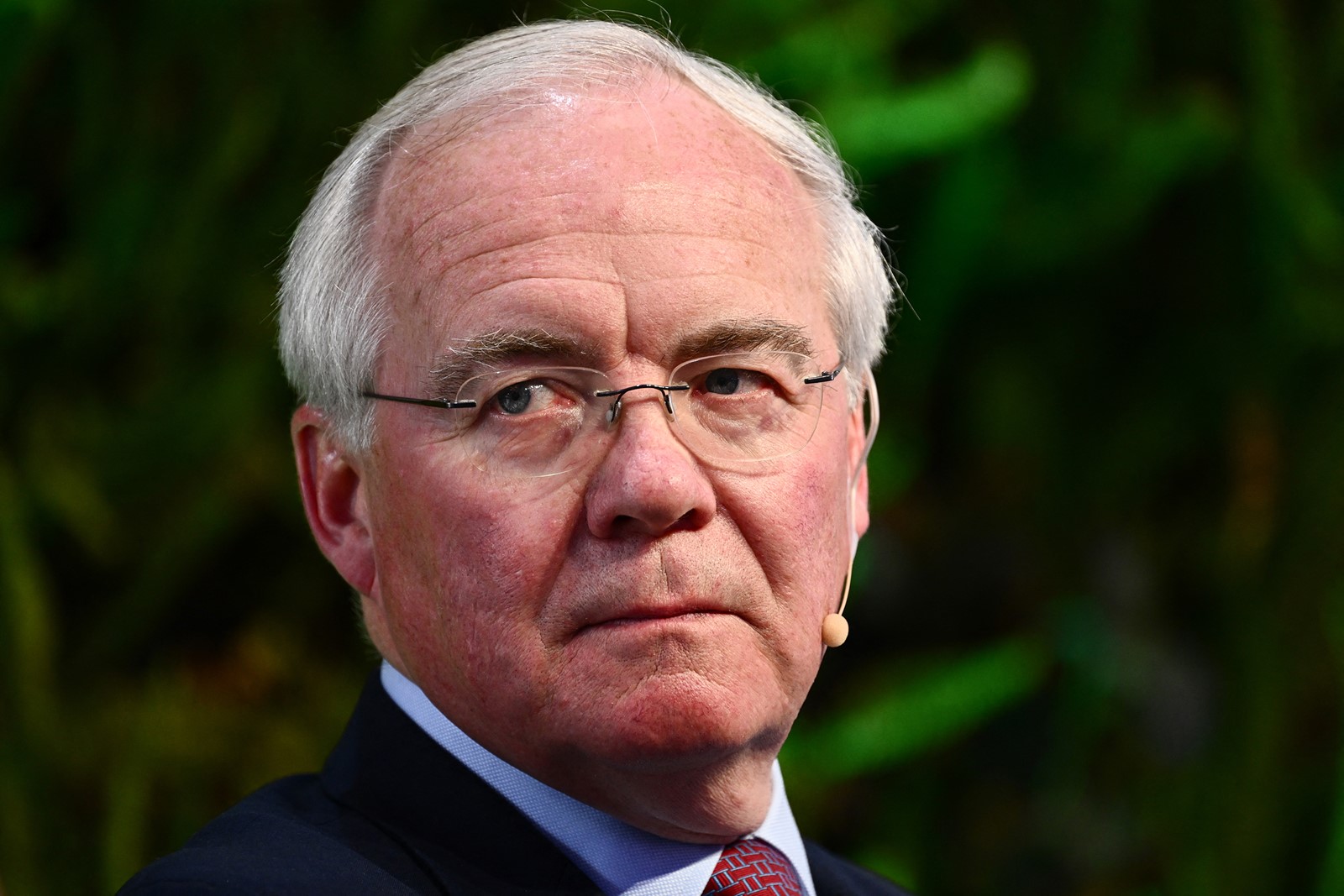
The Kroger Co. replaced Chief Executive Officer Rodney McMullen following an investigation into his personal conduct, casting a shadow on the supermarket operator’s path forward following a failed deal and a string of management departures under the longtime leader.
Lead director Ron Sargent, 69, was named chairman and interim CEO of Kroger effective immediately, and the Cincinnati-based company said it has initiated a search for a permanent replacement. Sargent has been a director since 2006 and formerly served as CEO of Staples Inc.
The company said McMullen’s conduct was unrelated to the company’s financial performance and didn’t involve Kroger employees. While the behavior didn’t involve its operations, Kroger said it was “inconsistent” with its policy on “business ethics.”
The shares fell 2% at 12:59 p.m. in New York trading. Kroger stock had gained 6% this year through Feb. 28, compared to a 1.2% advance for the S&P 500 Index.
The board of directors was made aware on Feb. 21 of “certain personal conduct by McMullen and immediately retained outside independent counsel to conduct an investigation.” The investigation was overseen by a special board committee.
The probe concluded in recent days, with McMullen resigning Monday, according to a person familiar with the matter. Sargent is unlikely to serve as CEO long term, the person said.
A Kroger spokesperson declined to comment further on the investigation and CEO change.
McMullen, 64, has overseen Kroger, the largest U.S. supermarket operator, for over a decade. He joined as a part-time stock clerk in Lexington, Kentucky, in 1978 and rose through the executive ranks.
Kroger’s policy on business ethics covers a range of practices from bribery and conflicts of interest to supplier and competitor relations. All employees are expected to adhere to policies, according to the company’s latest code of conduct, which was updated in 2023.
McMullen’s compensation package for fiscal 2023 was valued at $15.7 million, including a salary of $1.4 million, according to the company’s proxy filing last May. The company said he will forfeit all unvested equity awards outstanding under Kroger’s 2019 long-term incentive plan and won’t be eligible for his 2024 bonus. He will retain any equity awards that are fully vested as of the resignation date.
The former CEO was also the face of a botched $24.6 billion deal to buy Albertsons Cos., which the U.S. government blocked in December after finding the takeover would hurt competition in the grocery industry. It would have created the biggest U.S. grocery deal in history, bringing together more than 4,000 stores.
Kroger has seen changes to its executive ranks recently. It named David Kennerley, a PepsiCo Inc. veteran, as chief financial officer after his predecessor left last year to become CFO of Costco Wholesale Corp. last year. Kroger also appointed a new chief merchandising and marketing officer in November.
Like its competitors, Kroger has focused on diversifying beyond the core retail business into areas that have faster growth, such as advertising and data analytics. It also teamed up with U.K.-based Ocado Group to build warehouses for online orders — a deal that has drawn some skepticism.


 PREVIOUS ARTICLE
PREVIOUS ARTICLE
